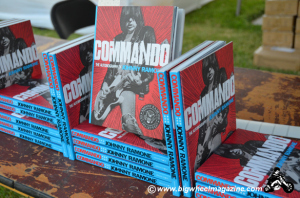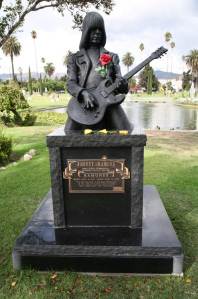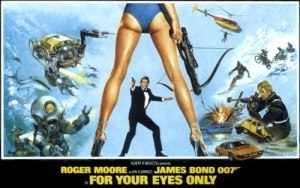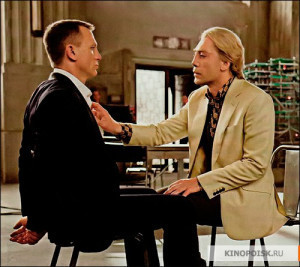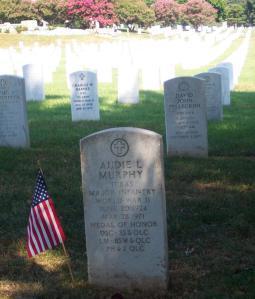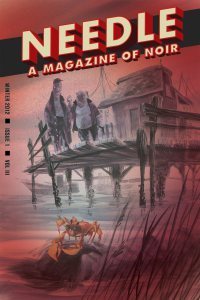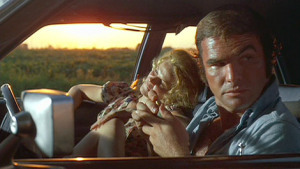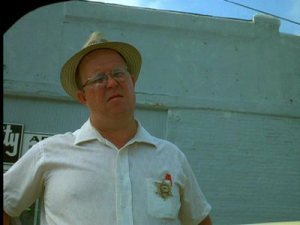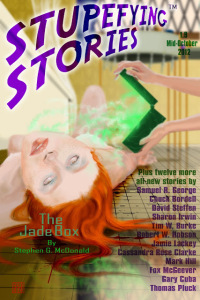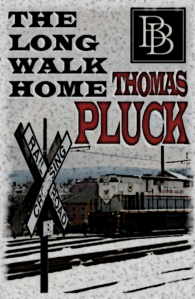Thomas Pluck's Blog, page 54
November 15, 2012
Belly up to the Bar with Andrew Nette
Andrew Nette is one of the founders and editors of Crime Factory, and the author of Ghost Money, a gritty crime novel set in Cambodia and published by Snubnose Press. His fiction has also appeared in Noir Nation and Phnom Penh Noir. Welcome Andrew to Tommy’s Tub, where we serve up the suds…
 TP: Welcome to Belly up to the Bar, Andrew. What are you drinking?
TP: Welcome to Belly up to the Bar, Andrew. What are you drinking?
 AN: It’s hot in Melbourne today, so I’ll have a Pacifico and a tequila chaser.
AN: It’s hot in Melbourne today, so I’ll have a Pacifico and a tequila chaser.
 TP: I looked forward to meeting you in New York before NoirCon, but Hurricane Sandy put the kibosh on that. The City has inspired plenty of writers, and many readers who never visit love to read about it, to tour it vicariously. You chose Cambodia as the setting for your first novel. Have you lived there, and what makes you passionate about it?
TP: I looked forward to meeting you in New York before NoirCon, but Hurricane Sandy put the kibosh on that. The City has inspired plenty of writers, and many readers who never visit love to read about it, to tour it vicariously. You chose Cambodia as the setting for your first novel. Have you lived there, and what makes you passionate about it?
 AN: Yes, I glanced at some pictures on Facebook today of people yukking it at Noir Con and saying what a good time they had and I’m deeply jealous. Now I’m thinking of hitting the northeast of the US in the first half of the year now.
AN: Yes, I glanced at some pictures on Facebook today of people yukking it at Noir Con and saying what a good time they had and I’m deeply jealous. Now I’m thinking of hitting the northeast of the US in the first half of the year now.
I started writing the book that eventually became Ghost Money in 1996 when I worked for several months in Cambodia as a wire service journalist.
I’d first travelled to Cambodia in 1992. It was a desperately poor and traumatised country. The Khmer Rouge, responsible for the deaths by starvation and torture of approximately 1.7 million Cambodians during their rule in the seventies, were still fighting from heavily fortified jungle bases. The government was an unstable coalition of two parties who’d been at each other’s throats for the better part of a decade and whose main interests were settling historical scores and making money.
Phnom Penh, the crumbling capital of the former French colony, was crawling with foreigners; peacekeepers sent by the West and its allies to enforce peace between the various factions, and their entourage of drop outs, hustlers, pimps, spies, do-gooders and journalists. The streets teemed with Cambodian men in military fatigues missing legs and arms, victims of the landmines strewn across the country. There was no power most of the time. The possible return of the Khmer Rouge caste a shadow over everything.
Cambodia fascinated me from the moment I first arrived. The people, the contrast between the anything goes, Wild West atmosphere of Phnom Penh and the hardscrabble but incredibly beautiful countryside.
History oozed from the cracks in the French colonial architecture and protruded from the rich red earth, sometimes quite literally in the case of the mass graves that litter the countryside. Things happened every day – terrible events and acts of heart breaking generosity you couldn’t make up if you tried.
I always thought Cambodia would be a good setting for a crime story. But I also wanted to capture some of the country’s tragic history, the sense of a nation in transition.
I was too caught up in the day to day reporting of events and trying to make a living as a freelance journalist to put much of a dent in the book. That didn’t come until nearly a decade later, when one day I sat down and started reading through some old notes.
 TP: My dream is to travel as widely as Lawrence Block, probably my favorite New York writer. He’s been all over. He was in Japan, and missed the storm, in fact. I know from your blog Pulp Curry that you love the old stuff, but who are your favorite living writers, and why?
TP: My dream is to travel as widely as Lawrence Block, probably my favorite New York writer. He’s been all over. He was in Japan, and missed the storm, in fact. I know from your blog Pulp Curry that you love the old stuff, but who are your favorite living writers, and why?
 AN: Well, a number of your countrymen and women make the list. James Ellroy, because his LA quartet blasted a huge hole in crime fiction that a lot of others were able climb through and do interesting stuff.
AN: Well, a number of your countrymen and women make the list. James Ellroy, because his LA quartet blasted a huge hole in crime fiction that a lot of others were able climb through and do interesting stuff.
I’ve loved everything Megan Abbott has ever written. An enormously talented woman and a master of allowing class, sex and social observation to collide in a way that does not take away from the precision of her plot and characters.
I’m a big fan of Martin Limon’s books featuring Sueno and Bacom, officers in the Criminal Intelligence Division of the US military based in South Korea. They are among the small but growing number of good, hardboiled/noir books set in Asia.
Donald Ray Pollock’s The Devil All the Time is a work of genius. I read it in January this year, and it’s still my best book for 2012. Rural noir with major kick, but no matter how sexually and physically deranged things get, Pollock avoids the temptation to play the story for cheap thrills. There is real humanity in these stories, even the most wretched of his characters struggle for meaning. Can’t wait to see what he does next.
In terms of non-US writers, let me see. UK author David Peace is up there for his quartet, Nineteen Seventy Four, Nineteen Seventy Seven, Nineteen Eighty and Nineteen Eighty Three. It is possibly the best crime series I’ve read. His depiction of northern England is incredible. And, unlike Ellroy, many aspects of what Peace writes about are familiar to me because of the cultural transference that took place from the UK to Australia.
I’d like to be able to list a lot more Australian writers as being major influences, but the crime scene here can be a bit pedestrian, partly, I suspect because we are so small (numerically not in terms of land mass). Garry Disher, who writes the Wyatt books, is a great writer and a great guy. The Cliff Hardy books by Sydney writer Peter Corris, have to get a mention, especially the earlier ones, for their depiction of class in eighties Australia. Western Australian writer, David Whish Wilson is also terrific. His debut crime novel, Line of Sight, is the best piece of crime fiction written here in years, an incredibly evocative depiction of Perth in the seventies as well as a great study of organized crime and corruption.
 TP: I appreciate your rigor with research. I try to do the same. While not all stories require it, I think the attention to detail allows you to paint a picture with a few strokes and not set off the reader’s bullshit detector. Ellroy and Abbott are two of my favorites as well. They’re like archaeologists unearthing the history of human weakness. What do you strive for in your own fiction?
TP: I appreciate your rigor with research. I try to do the same. While not all stories require it, I think the attention to detail allows you to paint a picture with a few strokes and not set off the reader’s bullshit detector. Ellroy and Abbott are two of my favorites as well. They’re like archaeologists unearthing the history of human weakness. What do you strive for in your own fiction?
 AN: I think I am still trying to figure that out. Indeed, I suspect writing is a continuous and ever evolving act of try of trying to figure out what you want to do. For now, I’d say I’m striving for to entertain but also deliver grit, authenticity and, as I said above, a convincing sense of place and history, one that hopefully sheds some light on a few little looked in nooks and corners.
AN: I think I am still trying to figure that out. Indeed, I suspect writing is a continuous and ever evolving act of try of trying to figure out what you want to do. For now, I’d say I’m striving for to entertain but also deliver grit, authenticity and, as I said above, a convincing sense of place and history, one that hopefully sheds some light on a few little looked in nooks and corners.
That’s why Abbott and Ellroy are so interesting. Ellroy’s books read like a parallel history of the second half of the 20th century in the US. Abbott’s work exposes alternative histories. My favourite of her books is The Song Is You, the story of Gil ‘Hop’ Hopkins, a movie studio publicity man/fixer/pimp whose life unravels when he is confronted with the consequences of a seemingly insignificant act one night. It’s a wonderful counter narrative to the myth of Hollywood.
 TP: I’ve never been to Australia, but will be visiting soon enough. My wife has always wanted to tour the whole continent. When I think about pop culture that’s affected me, it always goes back to Australia. My favorite band? AC/DC, preferably the Bon Scott years. He had that outlaw edge, and that really influenced me. We spoke a bit about musical influences, I think they get overlooked with writers. Who doesn’t write with music playing these days? Who are your favorite bands, and do they influence your writing at all, in tone, subject or rhythm?
TP: I’ve never been to Australia, but will be visiting soon enough. My wife has always wanted to tour the whole continent. When I think about pop culture that’s affected me, it always goes back to Australia. My favorite band? AC/DC, preferably the Bon Scott years. He had that outlaw edge, and that really influenced me. We spoke a bit about musical influences, I think they get overlooked with writers. Who doesn’t write with music playing these days? Who are your favorite bands, and do they influence your writing at all, in tone, subject or rhythm?
 AN: Bon Scott’s time with ACDC is still incredibly influential in Australia. The way ACDC played, their incredible outlaw rock and roll life style, it contrasts so sharply with the sanitized mainstream rock scene today, it’s almost like they were from another planet. I remember very vividly watching TV with my parents in late seventies and witnessing their sense of shock when ACDC came on. They simply could not get why Angus would wear a school uniform when he played, in addition to so many other things about the band. Interestingly, there is very little writing, and certainly no crime writing, I’m aware of, that’s captured this.
AN: Bon Scott’s time with ACDC is still incredibly influential in Australia. The way ACDC played, their incredible outlaw rock and roll life style, it contrasts so sharply with the sanitized mainstream rock scene today, it’s almost like they were from another planet. I remember very vividly watching TV with my parents in late seventies and witnessing their sense of shock when ACDC came on. They simply could not get why Angus would wear a school uniform when he played, in addition to so many other things about the band. Interestingly, there is very little writing, and certainly no crime writing, I’m aware of, that’s captured this.
I have to say, the only music I ever listen to when I write is jazz and only the jazz up until the late sixties, Davis, Coultrane, Mingus, Cannonball Adderley. I’ve never really thought about it, but if I had to answer why this is the case, I think it’s as much about the incredible sense of history I get from listening to jazz, as the music itself. History is very important to me and this is reflected in how I write. I don’t know whether my style hardboiled, noir, pulp, whatever those labels mean, but I always try and inject a sense of history, of paths taken and not taken, into my characters. It slows me down as a writer. I like to get the history right, but each to their own.
 TP: Movies are another influence. I’d be nowhere without Mad Max. Australia has a great film industry. You had a grindhouse era, but also haunting films like those of Peter Weir, and ones that are just plain fun like Starstruck, the new wave musical. Hell, I even liked Young Einstein, and I’ll admit it. You write about crime films on your blog as well. What are some that you think deserve to be better known?
TP: Movies are another influence. I’d be nowhere without Mad Max. Australia has a great film industry. You had a grindhouse era, but also haunting films like those of Peter Weir, and ones that are just plain fun like Starstruck, the new wave musical. Hell, I even liked Young Einstein, and I’ll admit it. You write about crime films on your blog as well. What are some that you think deserve to be better known?
 AN: I think we used to have a great cinema scene, one that was not afraid to put out gutsy, capital ‘G’ genre films, like the ones you mention, that were either terrifying or funny. These days we still put out some great films, but are funding bodies are dominated by film academics, so preference seems to go to long, ponderous art house films, which usually seem to involve a torturous coming of age story in some dreary working class suburb or depressed rural town.
AN: I think we used to have a great cinema scene, one that was not afraid to put out gutsy, capital ‘G’ genre films, like the ones you mention, that were either terrifying or funny. These days we still put out some great films, but are funding bodies are dominated by film academics, so preference seems to go to long, ponderous art house films, which usually seem to involve a torturous coming of age story in some dreary working class suburb or depressed rural town.
Related to this, we have a rich history of directors doing an incredibly kick arse genre movie as their first film, then going onto to make progressively more mainstream fare, usually overseas. Not that there’s anything wrong with mainstream, but it’s almost as though they are afraid to touch another local genre film once they get a hit under their belt.
Bruce Beresford’s first movie was Money Movers in 1979. I’d argue it’s one of the best heist movies around. Phillip Noyce’s first movie in 1982 was Heatwave, a terrific noir based on the real life murder of an anti-development campaigner in NSW in the seventies. More recently we’ve had Animal Kingdom, Red Hill and Snowtown, all terrific crime films by actors who are now going onto more mainstream fare.
In terms of other must see films. Anyone with a thing for rural noir should check out the 1971 film Wake in Fright, about a mild mannered teacher who gets stranded in a hard scrabble town in the middle of the Australian desert. One of the most overlooked Australian films in my view is The Cars That Ate Paris, a 1974 horror/comedy by Peter Weir. It’s about a rural town whose inhabitants make a living from causing car accidents and scavenging the remains, both materials and people. Weir also made an excellent film in 1977 called The Last Wave, about a Sydney lawyer whose life falls apart in steange ways after he becomes involved in defending an Aboriginal man accused of ritual murder. Last but not least, I would encourage people to check out the little known 1979 film, Thirst, a uniquely Australian take on a vampire film.
 TP: I honestly think the latest generation of writers, especially plot-driven fiction, are as influenced by film as they are by books. Let’s go back to New York. I’m sorry you didn’t make it this time. New York is one of those cities that means a lot of things to different people. What were you looking forward to most?
TP: I honestly think the latest generation of writers, especially plot-driven fiction, are as influenced by film as they are by books. Let’s go back to New York. I’m sorry you didn’t make it this time. New York is one of those cities that means a lot of things to different people. What were you looking forward to most?
 AN: For me, New York summons up the ghosts of so many books and films, it’s hard to know where to start. 2012 has been a bastard of a year, the low light of which was my mother dying of cancer in January. It left me exhausted and, to be honest, what I was looking forward to most, aside from meeting you and a number of other writers, was a couple of weeks to myself to walk about a city I’ve heard so much about. Aside from attending Noir Con in Philadelphia, that’s really all I had planned. Like I said, next year.
AN: For me, New York summons up the ghosts of so many books and films, it’s hard to know where to start. 2012 has been a bastard of a year, the low light of which was my mother dying of cancer in January. It left me exhausted and, to be honest, what I was looking forward to most, aside from meeting you and a number of other writers, was a couple of weeks to myself to walk about a city I’ve heard so much about. Aside from attending Noir Con in Philadelphia, that’s really all I had planned. Like I said, next year.
 TP: Going back to the Hurricane, folks in Coney Island are refusing to evacuate because of looting. Do you think people are generally good or bad, and either way, do you think the veneer of civilization make us more likely to behave badly when it is broken?
TP: Going back to the Hurricane, folks in Coney Island are refusing to evacuate because of looting. Do you think people are generally good or bad, and either way, do you think the veneer of civilization make us more likely to behave badly when it is broken?
 AN:I think we are both good and bad and I’m not sure it has much to do with our so-called level of development or economic advancement. I spent nearly seven years working as a journalist in Asia in the nineties, including in some of the poorest countries in the region. Obviously, I saw some dreadful things. I also witnessed and been on the receiving end personally of some incredible acts of generosity.
AN:I think we are both good and bad and I’m not sure it has much to do with our so-called level of development or economic advancement. I spent nearly seven years working as a journalist in Asia in the nineties, including in some of the poorest countries in the region. Obviously, I saw some dreadful things. I also witnessed and been on the receiving end personally of some incredible acts of generosity.
 TP: Crime Factory just put out a Horror issue. I think both genres are similar in many ways. They can be a response to fear, and they can be cautionary tales. Are you a fan of horror fiction, and what do you make of the recent popularity of supernatural crime novels?
TP: Crime Factory just put out a Horror issue. I think both genres are similar in many ways. They can be a response to fear, and they can be cautionary tales. Are you a fan of horror fiction, and what do you make of the recent popularity of supernatural crime novels?
 AN: I read recently that Western society’s interest in supernatural and the occult increases in times of great social dislocation and upheaval. Certainly, that makes sense if you think about the upsurge of films and books about the supernatural in the late sixties and early seventies.
AN: I read recently that Western society’s interest in supernatural and the occult increases in times of great social dislocation and upheaval. Certainly, that makes sense if you think about the upsurge of films and books about the supernatural in the late sixties and early seventies.
I can’t stand a lot of the stuff that passes for horror these days. As far as the films go at least, there seems to be a hell of a lot of incredibly violent, gratuitous stuff around.
I am interested in some of the books and films that came out in the sixties and seventies, like The Mephisto Watlz, Rosemary’s Baby, The Exorcist and The Omen, Race with the Devil, The Wicker Man, to name just a few. Back then there was much more of a focus on the genuine weirdness and horror of the occult and the people who practiced it, rather than demons or whatever slashing up teenagers.
 TP: I’m with you on the gratuitous horror. I think young men especially try to shock, to show we’re unafraid of flinching from the dark, but it gets tiresome. I call it squalor porn, and I agree that Mr. Pollock managed to evoke some sick individuals without crossing that line. He’s one of the best of the bunch. Frank Bill excels at it too, but he’s a lot more raw. You can shine a light on the depths of human depravity without drooling over it. If you’re just showing it to show it, it’s been done a thousand times before. Evil is banal, serial killers are boring once you catch them. They’re all the same, broken machines. People are interesting. The choices they make, and how they live with them.
TP: I’m with you on the gratuitous horror. I think young men especially try to shock, to show we’re unafraid of flinching from the dark, but it gets tiresome. I call it squalor porn, and I agree that Mr. Pollock managed to evoke some sick individuals without crossing that line. He’s one of the best of the bunch. Frank Bill excels at it too, but he’s a lot more raw. You can shine a light on the depths of human depravity without drooling over it. If you’re just showing it to show it, it’s been done a thousand times before. Evil is banal, serial killers are boring once you catch them. They’re all the same, broken machines. People are interesting. The choices they make, and how they live with them.
I’m glad you gave us some Australian novelists to check out. I think with the shipment of criminals in the 18th and 19th centuries, people expect Australia to have a lot more crime fiction, about guys like Chopper Read. Does the outback give Australians the same sense of wild pioneer spirit that Americans get from the West, like you could run off and be an outlaw?
 AN: I have to say I am not a fan of Chopper. He is basically a violent career criminal who has made a living writing books of questionable authenticity and accuracy about what he’s done. We are very into true crime in Australia at the moment and at the risk of annoying a lot of people, most of it is sensationalised crap. That’s not meant to sound squeamish, I just think the reality of Australia’s past is much more interesting than it is usually portrayed in the true crime books or shows in TV. Virtually the only exception I can think of now, is a series called Blue Murder, about a career criminal in Sydney called Neddy Smith and his relationship with a legendry hard man and cop, Roger Rogerson. It is the best true crime TV ever made in Australia.
AN: I have to say I am not a fan of Chopper. He is basically a violent career criminal who has made a living writing books of questionable authenticity and accuracy about what he’s done. We are very into true crime in Australia at the moment and at the risk of annoying a lot of people, most of it is sensationalised crap. That’s not meant to sound squeamish, I just think the reality of Australia’s past is much more interesting than it is usually portrayed in the true crime books or shows in TV. Virtually the only exception I can think of now, is a series called Blue Murder, about a career criminal in Sydney called Neddy Smith and his relationship with a legendry hard man and cop, Roger Rogerson. It is the best true crime TV ever made in Australia.
Regarding how we view our outback, that’s a very interesting question and in answering it, I’m probably talking as much about my own feelings on the issue as I am trying to sum up any sort of consensus about what Australians think.
Most Australian, like me live on the coast. I think for a long time we were basically terrified of our interior, which is beautiful but also incredibly vast and inhospitable. Linked to with is the incredibly brutal nature of our establishment as a British colony that I think we are still a bit in denial about.
I mentioned Wake in Fright earlier. It’s a great example of the fear about the bush semi hard-wired into the psyche of most city dwelling Australians. The movie is also excellent but when it first showed in the late sixties, people walked out in disgust at its – very accurate – depiction drinking and male violence. Another movie that deals with our extreme ambivalence about the outback is Walkabout by Nicolas Roeg. It’s an incredibly haunting film about two children stranded in the outback. They are befriended and saved by a young Aboriginal boy but the two cultures simply cannot understand each other.
Improved transport and technology have broken down the remoteness of the outback and with it a lot of our fear. But what we have now is a sort of enforced bullshit nationalism that idealises the bush and our past relationship without, I think, really understanding it. We don’t really want to come to terms with things out our treatment of the original inhabitants, which was/is bloody shameful.
Interestingly the outback is now the scene of a huge mining boom. It’s provided a second chance for a lot of people. You can, literally head out there and make a fortune, which fits into the pioneer notion you talk about. The boom is delivering great prosperity but also damaging the environment and dislocating small rural towns.
So, in terms of how this has been reflected in crime fiction and film, the results have been pretty unsatisfactory. There have been a few road movies of varying quality. In terms of crime fiction, Auther Upfield wrote a series of great books in the sixties featuring a black police detective called Boney, which are worth reading. More recently, Adrian Hyland has penned two novels set in the outback and featuring an Aboriginal policewoman. I have to say I’ve not read either of them but they are supposed to be excellent. I am waiting for a really good crime novel to use the mining boom as a setting.
 TP: One last question. What’s your death row meal?
TP: One last question. What’s your death row meal?
 AN: Anything Mexican.
AN: Anything Mexican.
 TP: Thank you for coming by, Andrew. It was great having a drink with you. I hope we meet sometime, in New York or on your side of the world.
TP: Thank you for coming by, Andrew. It was great having a drink with you. I hope we meet sometime, in New York or on your side of the world.
 AN: Thanks for having me.
AN: Thanks for having me.

Tagged: AC/DC, Andrew Nette, Australia, Belly up to the Bar, Bon Scott, Books, Cambodia, Crime Fiction, Crimefactory, Ghost Money, Horror, Interviews, Movies, Music, New York City, Noir, Snubnose Press



November 14, 2012
Commando – The Autobiography of Johnny Ramone
The Ramones turned me from a little nerd into a knife-wielding psycho.
Not really, but they were a factor. My friend Peter Dell’Orto introduced me to them, I think. I may have heard “Blitzkrieg Bop” on a random mixtape, but the first I remember is borrowing RamonesMania in the mid-80s and really getting into it, playing the twin discs so much that the track listing became how I expected the songs to follow. I bought the albums later, and their first four are classics. Johnny himself gives everything after that middling grades, but I liked Subterranean Jungle a lot. That album gets flak for being a little too soft, ’50s rock’n roll style, but we liked it. He was right about End of the Century, the Phil Spector disaster which practically ruined their career. I hate that album.
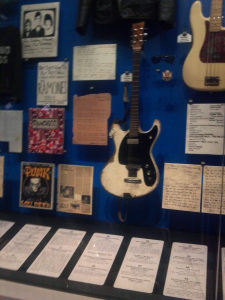
Johnny Ramone’s Guitar
The book is great, and a must read for any fan. For one, the design is original. A slab cardboard notebook, because he obsessively recorded life events in little binders, including every concert and baseball game he ever attended, and every gig they played. At first, the book reads like many rock bios- a bit egotistical, and not all that interesting, but as Johnny’s voice comes through, it almost reads like a novel with a narrator who unwittingly bares his secrets. He knew the end was coming, the book was written after he was diagnosed with terminal cancer, so he puts his heart into it and doesn’t shy from telling how he feels about anything. And yet there is little bitterness.
It’s well known that Johnny was a staunch conservative, but what comes through is hard-nose patriot, not a hatemonger like Ted Nugent. In fact, he admits that he did a lot of it to get a rise out of people. Sort of a meta-punk, offending the rebels themselves. I can see that. He reminded me of my father in a way, someone who went out of his way to get a rise out of people and make them uncomfortable. Not defending the guy, just understanding him.
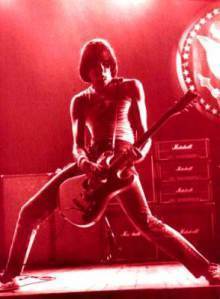
Johnny of course tells the story from his own perspective, and how the image of the Ramones was very calculated. They wanted a look, but one that any fan could emulate. They played songs that didn’t reveal their musical limitations, and they grew into it. What they had was passion and a desire to win, and they did not betray themselves. They sang about horror movies, World War 2, crazy people they knew, drugs and comic books. Politics crept through as the end came- the infamous “Bonzo Goes to Bitburg” was Joey & DeeDee, which I wrote about here, and Johnny and CJ sang “Let the Punishment Fit the Crime” and some later songs, but they weren’t very memorable.
I was pleasantly surprised by this book. He is brutally honest and revealing. They were not as successful as we thought, they influenced rock to a great degree by dragging it back to its roots, but their first gold record was RamonesMania, many years after release. They were prolific, they were original, their songs have an infectious energy that is unmatched, in my opinion, even today. And if you want to know what it was like to be a Ramone… let Johnny tell you.
I actually got choked up at the end of the book. Johnny, Joey and DeeDee are all dead. Joey is buried in the same cemetery as my grandmother. I visit them both sometimes. My grandmother means more to me, of course, but Joey and Johnny Ramone taught me it was okay to be weird, and to let that freak flag fly.


Commando: The Autobiography of Johnny Ramone
Tagged: Books, Johnny Ramone, Music, Ramones, Reviews



November 13, 2012
The Mooney Suzuki
I’ve been hearing this band on Underground Garage, Stevie Van Zandt’s Sirius radio station, and this song cracked me up. It has a mocking yet mournful quality to it. After reading Johnny Ramone’s autobiography, it started playing in my head again.
You may be growing older,
we may be growing old-er,
but you’ll never be older than dinosaur bones
and you’ll never be older than the Ramones
In Johnny’s bio, he said that he put dinosaurs on their last album cover- ¡Adios, Amigos! because that’s how he felt. They went out early, before they turned fifty. And for some, that’s better. Some musicians rock it long into their seventies. Pete Seeger seemed a little confused when he was on The Colbert Report, but he still played like gold. I haven’t seen the Stones- I’m not paying hundreds of bucks to see any band- but from video, they seem all right. I saw Dylan in the nineties and it was pathetic, we were all making excuses for the rambling wreck onstage. I have a sort of love-hate relationship with Dylan because he writes great music, but you never know what is his image and what is him, what is a put-on. I’d think at this point, when not acknowledging that he is a legend starts an argument, that he could chill out and let the curtains down. I’m not a fan of anyone who clings to their imagined persona beyond the stage.
My favorite Cary Grant quote is when he said, “Some days I wish I could be Cary Grant!” He admitted the artifice, he retired gracefully. He looked classier than most long into his silver years, but he stopped working. Cary Grant died young, Archie Leach got to retire and enjoy life. I think that’s what most stars ought to do, but not everyone has the fortitude to admit it.
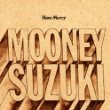

The Mooney Suzuki – Have Mercy

Tagged: cary grant, mooney suzuki, Music, Ramones, Song in my Head This Week


November 12, 2012
Skyfall – 50 years of Bond
My favorite Bond used to be Roger Moore, but I got better.
See, he was all I knew growing up in the ’80s. The first James Bond movie I remember seeing was For Your Eyes Only, which gave me an instant crush on Sheena Easton and a love of espionage thrillers, with a little goof thrown in. Not as ridiculous as Moonraker, but hardly the strongest of the Bond franchise. I have a bit of a soft spot for Live and Let Die, but most of the Moore films are pretty forgettable, except for the villains- Yaphet Kotto, Christopher Walken. Richard Kiel.
I read all the Ian Fleming novels and ran to Curry’s Home Video, our big video store, to rent all the Bond films. Love Connery, even Never Say Never Again, which showed he kicked Moore’s ass even when he was joking about his age by going to a spa retreat. I still think Goldfinger is the best of the Bond franchise, Craig included. And I like the Craig films a lot. From Russia with Love is probably second, I appreciate the roughness of Dr. No, Thunderball upped the game and You Only Live Twice gave us the hollowed out volcano lair full of ninja warriors that defines the supervillain archetype. Diamonds Are Forever was a good time to check out. I like some of it, but by that point we sat around waiting for the snappy one-liners, and that’s never a good thing.
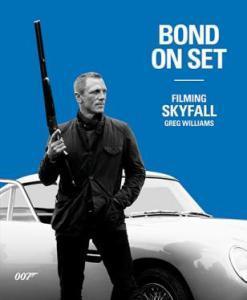
Bond with a Holland & Holland style .500 Nitro Express Double Rifle – old school English cannon!
I liked Dalton and Brosnan, though both their runs ended silly, with Licence to Kill and Die Another Day crapping on the good they did with The Living Daylights and Goldeneye, respectively. On Her Majesty’s Secret Service has found new love, and it is good compared to the silly Moore films, but it’s not very memorable to me. Casino Royale was the best reboot of modern times- better than Batman Begins, in my book- and Quantum of Solace may not have been a great follow-up, but I enjoyed it.
Skyfall is a fitting denouement to Craig’s Bond. That’s assuming that Idris Elba is truly taking over the double-0 moniker, something I welcome fully. It was hilarious when fans choked with rage over a blond blue-eyed Bond, I can’t wait for the response to a black one. I mean, he’s not an American, so get over it. Bond is a British operative, and by this point we have to accept that he is not the same man in all the films, despite Skyfall’s one misstep- making James Bond the character’s real name, and not one he uses for missions.
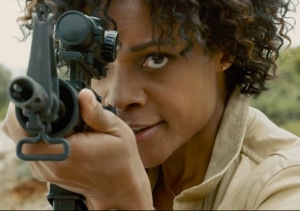
She’s gorgeous, sharp, and dangerous.
Other than that- and a little flirtation with the excellent high tech espionage from The Bourne Ultimatum- they stay very true to what makes Bond Bond- a gritty, fatalistic sense of expendability, as a spy and operative who is supposed to be beyond top secret. He is a throwaway weapon, and they make that clear in the excellent opening scene where he is partnered with sexy sniper Eve (Naomie Harris). The heart of the film is an attack on MI6 from multiple fronts, politics and terrorism. I liked grounding it in reality, especially after the recent scandals and dust-ups the superpowers have had with their intelligence divisions. Director Sam Mendes keeps the tension high, and the action scenes are easy to follow and still quite thrilling, whether it is hand to hand combat, gun battles, ambushes and car chases, military helicopters, trains and bulldozers and yes, komodo dragons. The exotic locales are Shanghai, the Middle East, Macau and the gorgeously bleak Scottish north.
Bond has become less a Lothario, and some have made complaint. There is the lethal Severine, played by French actress Berenice Marlohe, and a nameless beauty in Bond’s Mediterranean hideaway, but for me the sexual tension between him and Eve during one scene was enough to fuel the whole film. The film teases that we will be seeing more of her, and I hope we will. The Bond fan in me loved the final battle. We get a throwback that fits perfectly. Javier Bardem plays a Bond villain some will mock, but no one will forget. He is incredible, fierce and disturbing, as cunning as Heath Ledger’s Joker and just as memorable. I’ve heard nervous laughter about his homoerotic scene with Bond as his captive, and I had to laugh. Anyone forget Auric Goldfinger aiming a laser at Sean Connery’s lap-haggis?
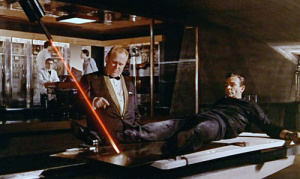
No, Mr. Bond! I expect you to die. Le petit mort, you know. wink wink.
I don’t think Skyfall needs defending. I admire that the target is Britain, and not “the world.” He’s a spy, not Superman. I liked seeing the internals of MI6, I loved Eve, and that everyone who works for the agency is effective… if not as effective as 007. Bond does not meet his female match, but Eve is not a damsel. M (Judi Dench) is a desk jockey. Bond is a killing machine, and they make it clear that he has the psychological problems that any trained killer experiences. It’s still a movie, but I like that our image of a hero now allows for a wounded warrior concept, that killing, even for good, takes a toll. And it’s not a job you want to sign up for. It’s one that finds you, because it’s something you can do and not lose it.
But enough heavy talk. This isn’t a silly Bond movie. It has some laughs and winks, but it is as gritty as the other Craig films and perhaps ends the trilogy, right where it should. This is a must-see for Bond fans of any era, and an excellent 50 year anniversary topper for the franchise. Some of my Twitter friends were disappointed, but I’m not sure what they were expecting. I was thrilled, I cheered several times, to my wife’s chagrin, and seeing it in IMAX was worth every penny, and every minute of waiting in line.
The film is confident enough to serve Bond a martini and have him say “perfect,” when it is shaken and not stirred. Have you ever seen a martini stirred? Having him say “shaken not stirred” is irrelevant, but the movie is not. Perhaps it has learned a bit from The Dark Knight and the Bourne films, but I think that makes it stronger. It didn’t top either of those films, but they’ve proven that the Bond films can remain relevant and true to their heart.
Tagged: James Bond, Movies, skyfall


November 11, 2012
Veteran’s Day
It is Veteran’s day. Armistice Day, too. End of the first world war, the first time we as a species decided to murder each other en masse. Let us hold precious the lives of every soldier, so their service is never taken in vain. Let us never forget their sacrifices. If you want to help, there are many charities which assist active duty and retired, and veterans of all wars. One that was recommended to me from a military family member is Fisher House, which helps military families visit injured and recovering veterans:
Today I can’t think of a better cause.


November 9, 2012
Take the Skinheads Bowling
Song stuck in my head this week is a oft-unheard classic from 1985 by Camper Van Beethoven. This song, like many, is a time machine for me. I can remember when my friend Frank Ritacco mentioned it, and it took me a long time to find it and listen to it. No youtube in the ’80s. I couldn’t find the album, so I bought the band’s EP “Vampire Can Mating Oven,” and still love their version of “Photograph.”
If you don’t know the band and they sound familiar, it’s because the lead singer left to join Cracker, the ’90s band famous for “Teen Angst (What the World Needs Now)” and “Low.”
Tagged: 80s, Camper Van Beethoven, Music, Song in my Head This Week



November 8, 2012
Gumbo Weather
My Jay Desmarteaux story “Gumbo Weather” is in Needle: A Magazine of Noir’s new double issue with a bunch of other hard hitting writers. Needle has always kept the bar high. Chris Holm’s story “The Hitter” was chosen for The Best Mystery Stories of 2011 by Harlan Coben.
Sometimes things just work out. I was worried that this story would come out in the summer, instead of prime gumbo weather. Then Weddle & co. release it on the eve of the first snowstorm to hit the East coast after Hurricane Sandy, and it couldn’t be a better time to get your roux going for a pot of gumbo.
It is available only in print, with this snazzy cover:
Buy Needle’s 2012 Double Issue
Use the code NOVBOOKS12 to get 20% off your order.
And if you want to make gumbo, here’s this Yankee’s attempt…


November 6, 2012
White Lightning … Gator McClusky for President?
Now I am not sure of where Gator stands on most of the issues. I think he’s a one issue voter. With that issue being “kill the sumbitch sheriff who murdered my brother.”
WHITE LIGHTNING is the story of a bootlegger named Gator McClusky doing time in prison for running booze. They won’t let him go to his brother’s funeral, but the Feds have an idea he was murdered by a crooked sheriff, played by Ned Beatty. So they let Gator out and give him a supercharged beast of a Ford LTD, a super sleeper that no one in the county can catch. His mission? Run booze! Run it better than the Sheriff, so they can catch him at it.
Actually the mission isn’t all that clear once Gator is out of prison. He visits friends and family, he taunts the Sheriff by racing around town, he makes a few moonshine runs. He strong-arms a mechanic into sabotaging a runner’s car so he can take over, he sleeps with his buddy’s girlfriend, he shoots up a few crooked lawmen and races all over creation. This was before Reynolds got huge and let his ego take over, and he plays a backwoods boy quite well. He’s a little rough around the edges, but he can charm the bloomers off a sweet county clerk. I had never seen this minor classic, but I remember watching Gator, the sequel, on Videodisc back in the day. Yep, my father had one of those. I bought an HD-DVD player, so choosing the losing medium must be in our blood.
White Lightning was a lot of fun. It’s not quite up there with VANISHING POINT and BULLITT for car movies, but Hal Needham did the stunts, and it makes for a nostalgic and enjoyable night’s viewing. I drank an Abita and remembered a simpler time, when a fast car, a quick wit and a whole lot of guts was all you needed to wipe the county clean of evil. Movies like this, Dirty Mary Crazy Larry, and Mad Max certainly inspired me to write Jay Desmarteaux.
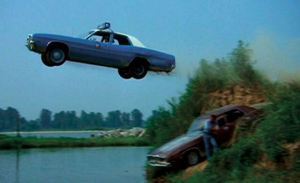
Tagged: 70s, Burt Reynolds, Cajun, Gator McClusky, Movies, Ned Beatty, Reviews, Strange and Sweet 70s Cinema


November 5, 2012
Prepare to be Stupefied
I have a li’l shorty in the excellent new issue of Stupefying Stories, a speculative fiction magazine edited by Bruce Bethke. The best review I’ve read of it is by Wag the Fox: “You can no longer say they don’t write ‘em like that anymore,” and I’m proud to be a part of it.
You can buy it for Kindle here:


Stupefying Stories: Mid-October 2012

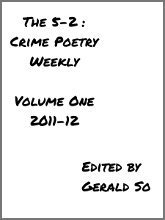
I also have a poem in Gerald So’s anthology, The 5-2: Crime Poetry Weekly, Vol. 1 which is now available on Kindle, collecting one year of crime and noir poems from The 5-2.
Tagged: Bruce Bethke, Gerald So, Horror, Humor, Poetry, Science Fiction, Stupefying Stories, The 5-2 Crime Poetry Weekly, Writing


November 2, 2012
Burning Bridges and Criminal Complexes
I am proud to have my story “The Long Walk Home,” about a Korean war vet’s final battle, in November’s Burnt Bridge. It’s a great publication, printing some fantastic writing. Most recently I was knocked out by Adrian Stumpp’s story, “The Saga of the Jomsvikings.“
And Matthew Funk—the prolific hard-boiled crime writer whose tales set in the Desire section of New Orleans hit harder than any Category 5 Hurricane—interviewed me at Criminal Complex. We talk vigilantism, vengeance, the justice system, and if crime fiction can save the world.
Tagged: Burnt Bridge, Interviews, Matthew Funk


Thomas Pluck's Blog
- Thomas Pluck's profile
- 122 followers


